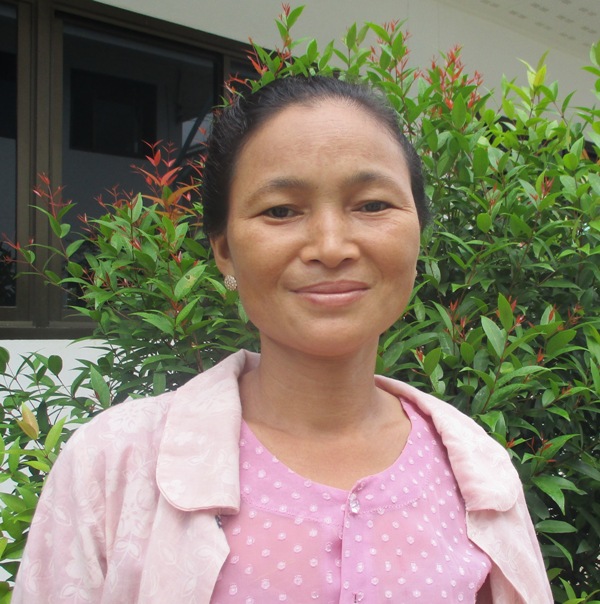Eh Mu (Gynecological)
October 12, 2020 • Posted in BWMF Success stories
Mu (40) lives with her husband, son and daughter in a village in Karen State, Burma. She and her husband are subsistence farmers, growing rice, beans, and peanuts on their own land. They also have a shop where her son sells peanut oil that they make as well as snacks. Through the shop, they are able to make 300,000 kyat (approx. 300 USD) a month. However, since they have to look after Mu’s in-laws and her father, pay for her daughter’s tuition and send money to her other son, who is a student in Hpa-An, they are unable to save.
HAVING BABIES
Mu gave birth to her first child when she was 22 years old. She had the baby at home with the help of a traditional birth attendant (TBA). After she gave birth, she felt something inside her lower abdomen was abnormal. Since there was no hospital nearby and she worried about the cost of seeking medical treatment elsewhere, she sought advice from the TBA. The TBA pushed upwards on her uterus and Mu felt better after. Following this, each time Mu gave birth, the TBA would push her uterus back into place.
However, the last time Mu gave birth, 11 years ago, the TBA tried to push her uterus back into place, but Mu continued to have an uncomfortable sensation in her lower abdomen. Often, she felt as if her uterus was falling out when she worked or carried heavy items.
THERE’S A CLINIC IN THAILAND
One day her cousin told her about Mae Tao Clinic (MTC), a free clinic in Thailand, that might be able to help her. With her husband staying behind to work on the farm, Mu made the one-day trip to MTC with her cousin. Walking from their village to the nearest road, they traveled by car, boat and bus before arriving at MTC. At the clinic, Mu received a physical examination and was diagnosed with a prolapsed uterus. She was then referred to Burma Children Medical Fund (BCMF) for financial assistance accessing further treatment.
Through BCMF’s help, she was taken to Mae Sot Hospital for treatment. During her first visit, she received a physical examination, blood and urine test, and an X-Ray. When she returned to the hospital, on 24 September 2017, Mu was admitted for surgery. The doctor explained to her that she required a vaginal hysterectomy, and that she would no longer be able to have children after the surgery. Mu consented to the procedure and underwent surgery the next day. She was later discharged on 28 September 2017.
BACK TO NORMAL
Since her hysterectomy, Mu feels a lot better. She no longer feels like she has to carry something around with her. “I have escaped from the prolapse [uterus] and I can walk comfortably now,” she said. “I don’t know how to express it, but I feel like I look so different compared to before. I’m very happy that I will be able to return home and see my children. I’m also thankful to donors that helped pay for my treatment. Now I will be able to work on the farm again.”


